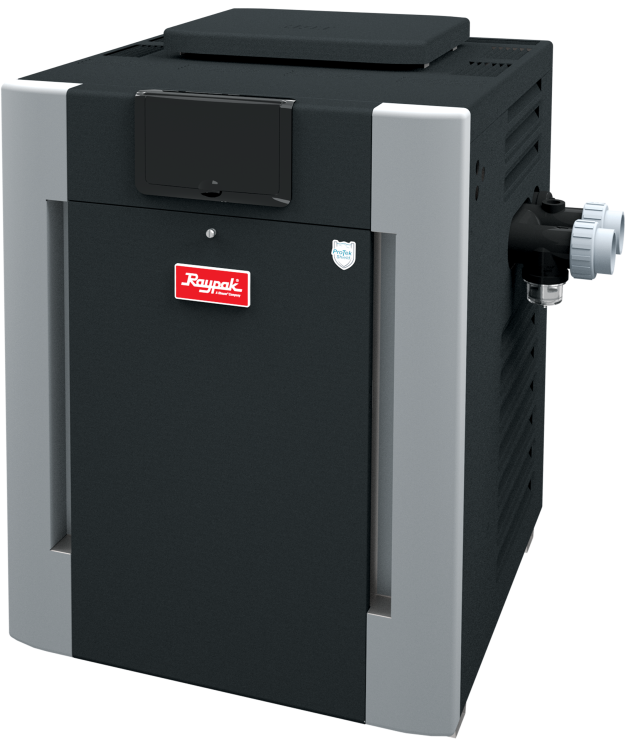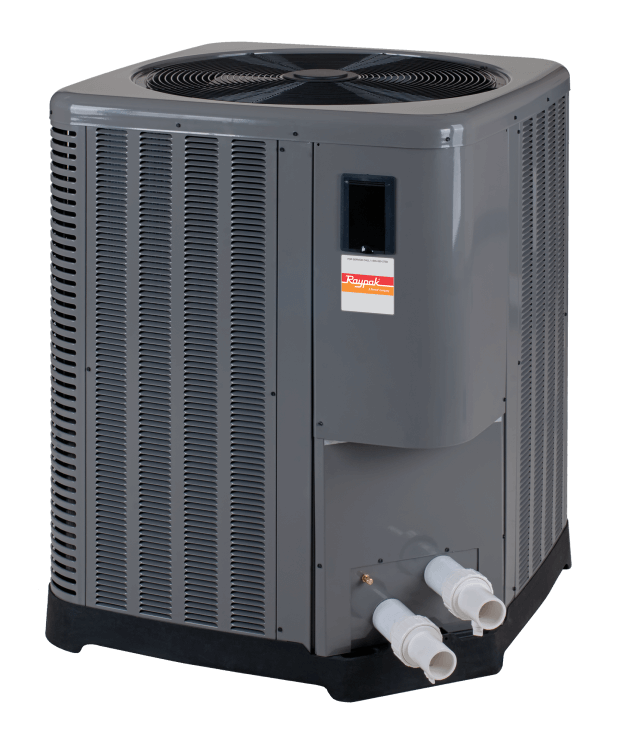Published by EZ Pool & Spa Supply on 01/23/2019
Heat Pump vs. Gas Heater - Which Is Better for Your Pool?
Heating your pool is a great way to lengthen your swimming season, and bring more enjoyment to the experience for everyone in the family. But somewhere along the way, you may have gotten confused as to how to do it. Visit a pool supply store and you'll be hit with the question "Gas-fired heater, or heat pump?"
The simple desire to heat your pool may have left you in a quandary. Don't lose sleep over this one. I believe in the short amount of time it takes you to read this blog, we can help guide you to the right choice for your pool.
| OR |
|
Both Have Strengths and Weaknesses
This is NOT one of those scenarios where one is simply better than the other, no matter what the details are. A gas fired heater and a heat pump are built differently, perform differently and have very different energy usage. By understanding those differences you can determine which type suits you best.
Before we get into pros and cons, here's some general info about gas heaters . To begin with, gas heaters are fueled by either natural or propane gas, are the most popular choice for pool owners, and have been around longer than pool heat pumps. A quick search for pool heating options will bring up many more gas heaters than heat pump models.
PROS
- Cost Less Than Heat Pump to Purchase - Depending upon the size of your pool, a gas heater will set you back about half as much cash as a heat pump.
- Maintain Water Temperature in Any Weather - Gas heaters are not dependent upon outside temperature in order to produce heat for your pool . Cool outside temps? No problems for a gas heater!
- Heat Up Quickly - Unlike a heat pump, gas heaters are able to raise water temperatures for even the largest pools in a relatively short period of time. Perfect for "weekend warriors" , a traditional gas heater allows you to wait until a short period of time before you want the heat.
- May Cost Less to Install - Depending upon the circumstances (distance of your pool from the house, availability of natural gas lines to your home, etc.) many gas heaters will cost the homeowner less to install.
CONS
- Uses More Energy/Costs More to Operate - Due to the inherent inefficiency of gas heaters, they will cost you a good bit more to operate . True, gas heaters warm up the water quickly, but they will use more energy in the process, which translates to higher expense in running.
- Shorter Unit Life Spans - Due the high heat produced within the unit and the larger amount of moving parts, you can expect a gas unit to need repairs possibly more often and fail before most heat pumps will .
- Tank or Lines Needed - If you have natural gas service already piped to your home, this may be the best option (remember that most heaters have the option of coming as propane or natural gas units). Running as gas line to your pool would be needed (you'll need it plumbed in), OR you'll need one of those very large tanks in your yard for propane (not the prettiest sight) and will need it refilled regularly.
Some general info - they are powered by electricity, and work like an AC unit only in reverse. These heat pumps do not produce heat so much as extract it from the outside air & compress. These are much newer to the residential pool landscape and are not as commonly seen, especially in the northern climates.
PROS
- Use Less Energy Over Longer Periods/Lower Operating Cost - Heat Pumps are very efficient and convert most of the energy over to heat. This means that most pool owners are spending quite a bit less to maintain the same temperature over a long period of time. Even though they use electricity and seem to be expensive at first glance, the operating cost is lower.
- Will Often Outlast Gas Heaters - Heat pumps by design have very few moving parts, and because of their "low and slow" operation will have less wear and tear. This translates to a longer lifespan than gas heaters. Fewer repairs are likely as well.
- Environmentally Friendly - Unlike Gas heaters, heat pumps produce no carbon dioxide, and use much less energy making them a greener option to use.
CONS
- Slower Warm-Up - Heat pumps are the long distance runners , not sprinters like gas heaters, which means they do not work well when you expect to leave them off for days and turn them on to warm up the pool for the weekend.
- Potentially More Expensive Electrical Installation - Heat Pumps require 220 Volt service which may require higher installation cost due to breaker panel availability and distance to the pool.
- Purchase Price is More Than Gas Heater - Although prices are getting better for heat pumps, their initial purchase cost is substantially more than most gas heater options.
Ultimately, the best choice for your pool is what suits you and your situation best. Once again there is no right choice for everyone, but better choices depending upon your needs and desires for your family's pool.
Need more help? Call or stop by any of our stores and we'd love to help further guide you in your choice!
Keep Swimming!








